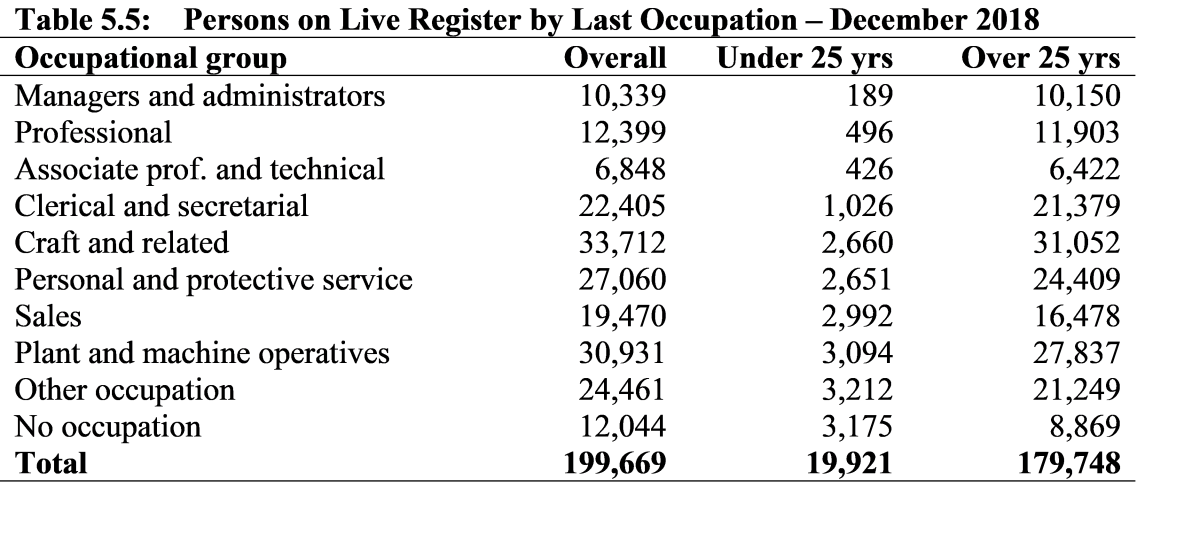Social Justice Ireland welcomes the coming into force of the Employment (Miscellaneous Provisions) Act, 2018

Social Justice Ireland welcomes the operation of the Employment (Miscellaneous Provisions) Act, 2018 as it moves Ireland towards progress both under the Sustainable Development Goals (SDG 8) and addressing some of the difficulties experienced by Ireland’s working poor. However, in order for this legislation to be fully effective, it must be monitored closely with immediate sanctions for workplaces which do not comply with its terms.
Meeting our Sustainable Development Goals - SDG 8, Decent Work and Economic Growth
SDG 8 appeals for providing opportunities for full and productive employment and decent work for all while reducing child labour, and human trafficking by promoting labour rights and secure working conditions.
In our Sustainable Progress Index 2019, a comparative study of Ireland’s progress on the SDGs compared to our EU15 peers, 4 indicators are used to compute this SDG. Real GDP per capita in Ireland is high relative to the other EU15 countries, second only to Luxembourg. Ireland also had the highest rate of growth in GDP. Ireland’s unemployment rate shows good improvement, however, the NEET Rate (youths not in employment, education or training) ranks Ireland 11th on this indicator.
We include the incidence of low pay in SDG8 to capture the idea of quality work in the economy, although there is yet no agreed measure of decent work developed for use in the SDGs. With approx. 22.5% of employees in Ireland considered low-paid, Ireland scores at the bottom for this indicator. The overall rank for Ireland on SDG 8 is 9th out of 15.
Addressing Under-employment and Precarious Employment
However, as the figures in Table 5.1 show, taken from our Socio-Economic Review, ‘Social Justice Matters: 2019 guide to a fairer Irish society’, there has been a growth in various forms of precarious employment over recent years. The number of people employed is higher now than it ever has been. Because of the population increase, however, since 2007 employment has fallen by just under 1 per cent; but this figure masks a bigger decline in full-time employment (1.2 per cent) and a growth in part-time employment (+10.4 per cent). Within those part-time employed it is worth focusing on those who are underemployed, that is working part-time but at less hours than they are willing to work. By the third quarter of 2018 the numbers underemployed stood at 111,500 people, 4.6 per cent of the total labour force and about one-quarter of all part-time employees.

Source: Society Matters: 2019 guide to a fairer Irish society, Chapter 5, Social Justice Ireland 2019
These figures suggest the emergence of a greater number of workers in precarious employment situations. The growth in the number of individuals with less work hours than ideal, as well as those with persistent uncertainties concerning the number and times of hours required for work, is a major labour market challenge. Aside from the impact this has on the well-being of individuals and their families, it also impacts on their financial situation and adds to the working-poor challenges experienced by those 109,000 people at work and still receiving an income below the poverty line. There are also impacts on the state, given that the Working Family Payment (formerly known as Family Income Supplement (FIS)) and the structure of jobseeker payments tend to lead to Government subsidising these families’ incomes, and indirectly subsidising some employers who create persistent precarious employment patterns for their workers.
Given the current strength of the labour market, Social Justice Ireland believes that now is the time to adopt substantial measures to address and eliminate these problems. Our commitment to the development and adoption of a Living Wage reflects this. Also in that context, the establishment of the Low Pay Commission is a welcome development. It is important that this group provides credible solutions to these labour market challenges and that such proposals are implemented. We therefore welcome the coming into force of this important piece of legislation and urge Government to ensure that the necessary oversight is in place to ensure it meets its objectives.